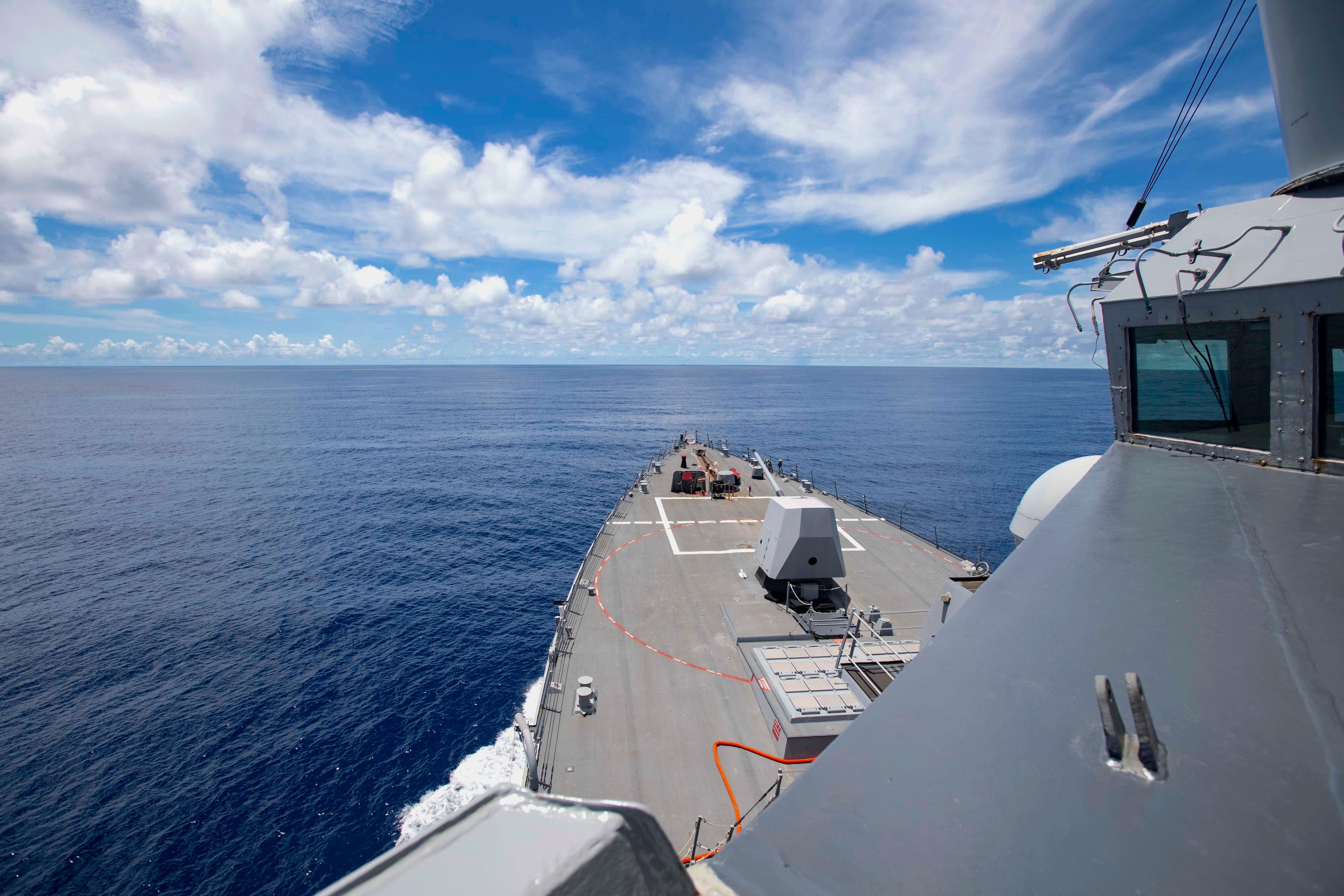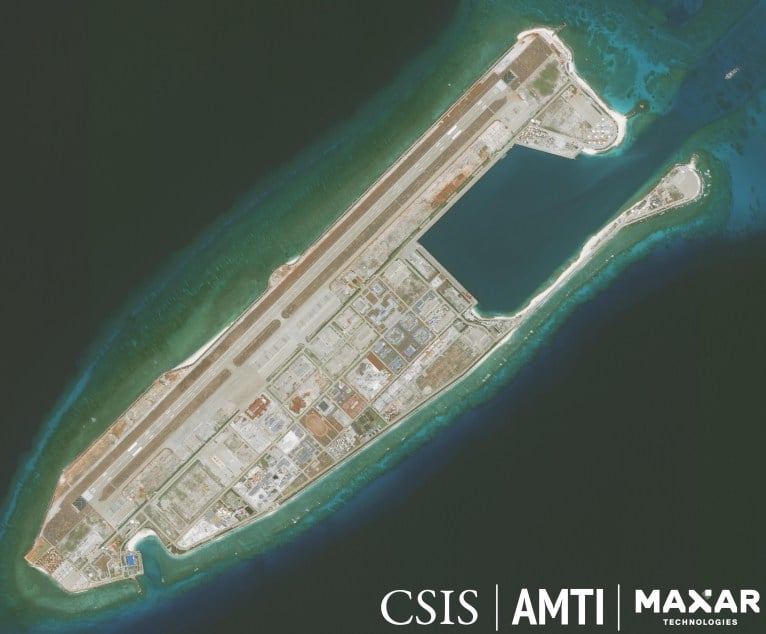
Freedom of navigation operations in the South China Sea puts stress on the fleet when the Navy could use that time more effectively “to train up for high-end conflict,” a national security expert who served in the Trump administration said Friday.
Speaking at a Center for Strategic and International Studies Forum, Elbridge Colby, former deputy assistant secretary for strategy and force development, said “there is a cost” to U.S. 7th Fleet in these operations that can be measured in lost time in “restoring our warfighting edge.”
The co-founder of the Marathon Initiative cited Defense Secretary Mark Esper’s recent remarks at the Center for Strategic and Budgetary Assessments, where he unveiled the Battle Force 2045 plan. Esper said, “It’s more important to prioritize modernization and future-readiness over the demands of today.”
In an answer to a follow-up question, Esper said the “Navy also has an ambitious mission set that includes peacetime activities, competition activities – you have to demonstrate presence – forward presence, the ability to control sea lanes, the ability to work with partners and allies and do those things. So anyone day, we have nearly 100 or so ships deployed doing these things. …(But) you don’t build a force around a single scenario.”
Colby said the operations “really don’t stop anything,” like China’s militarizing of artificial islands.
Colby questioned the value of FON operations, but not the importance of the South China Sea, Bonnie Glaser, director of CSIS’s China Power Project, said FONOPS “is an of those areas where China complains loudly and regularly.”
She complimented the administration for “more effective FONOPs” in “effectively challenging” Beijing’s 9-Dash line territorial claims to most of the South China Sea. In 2016, an international tribunal dismissed China’s assertion of sovereignty in a case with the Philippines that involved that claim. Beijing refuses to abide by the ruling.
Colby said China’s “military development in the South China Sea is material” to the United States’ strategic interests. Beijing’s aggressive reclamation of maritime features and militarizing these artificial islands “doesn’t mean they’re impregnable.” But all these activities “are intimidating to neighboring states.”
Colby added that the South China Sea doesn’t fall “within the traditional American defense perimeter” in the Indo-Pacific, with the exception of the Philippines. This fact means the region has not been at the top of hot spot concerns like the Korean Peninsula or the Middle East. It is also a “slow-moving crisis,” he said.
The seven bases on artificial islands, however, have “the potential to put a chokehold on one of the world’s most important trade routes,” Glaser said.
Colby termed Beijing’s message now to its Southeast Asian neighbors as one of: “we’re a big country; you’re a little country,” so get on the bandwagon before it’s too late.
Glaser said, “effective control of water and air space is integral” to China’s long-term goal of limiting U.S. access to the South China Sea. Its immediate goal is to pressure neighboring Southeast Asian countries into joint energy development projects in the water.

If the neighbors such as Vietnam or Malaysia don’t go along, they face “harassment” from Chinese coast guard and naval militia vessels. The intimidation at sea extends to American energy companies conducting exploration operations in those waters.
Sanctions are an effective way to curb this harassment, but hard to achieve from a coalition. Colby and Glaser admitted getting other countries to sign on to sanctions against Beijing or Chinese companies is difficult because of the enormous economic power it wields across the Indo-Pacific.
But that kind of pressure, as Washington recently imposed against two dozen firms that were involved in the reclamation projects, signals to allies and partners across the region that the United States will make China pay a price for bullying.
The State Department has repeatedly stressed Washington won’t tolerate China’s excessive claims to territories. Australia, France, Germany and the United Kingdom have joined in condemning China for ignoring U.N. tribunal ruling on the question.
Other U.S. allies might be cool to support the move. Glaser said that while “no country wants to see China as a dominant power,” Seoul has been slow to see the South China Sea as being important to its own security. “It’s not going to be an easy lift,” Glaser said.
The South China Sea is “the critical open field” where “China is working to establish that dominance” that it does not have in the East China Sea and the Taiwan Straits.
Looking ahead to what happens after the American presidential election, Glaser said the United States needs “to play some part” in the Code of Conduct being adopted by the Association of Southeast Asian Nations with China.
Colby said Washington needs to remember it is “not the peaceful rise of China anymore” when it comes to future relations. In terms of security, this is especially true when it comes to Taiwan.
Glaser said in an era of competition there were areas where the two can cooperate, such as climate change. Any administration would “have to be careful not to let China bog us down in process. … They talk us to death.”





